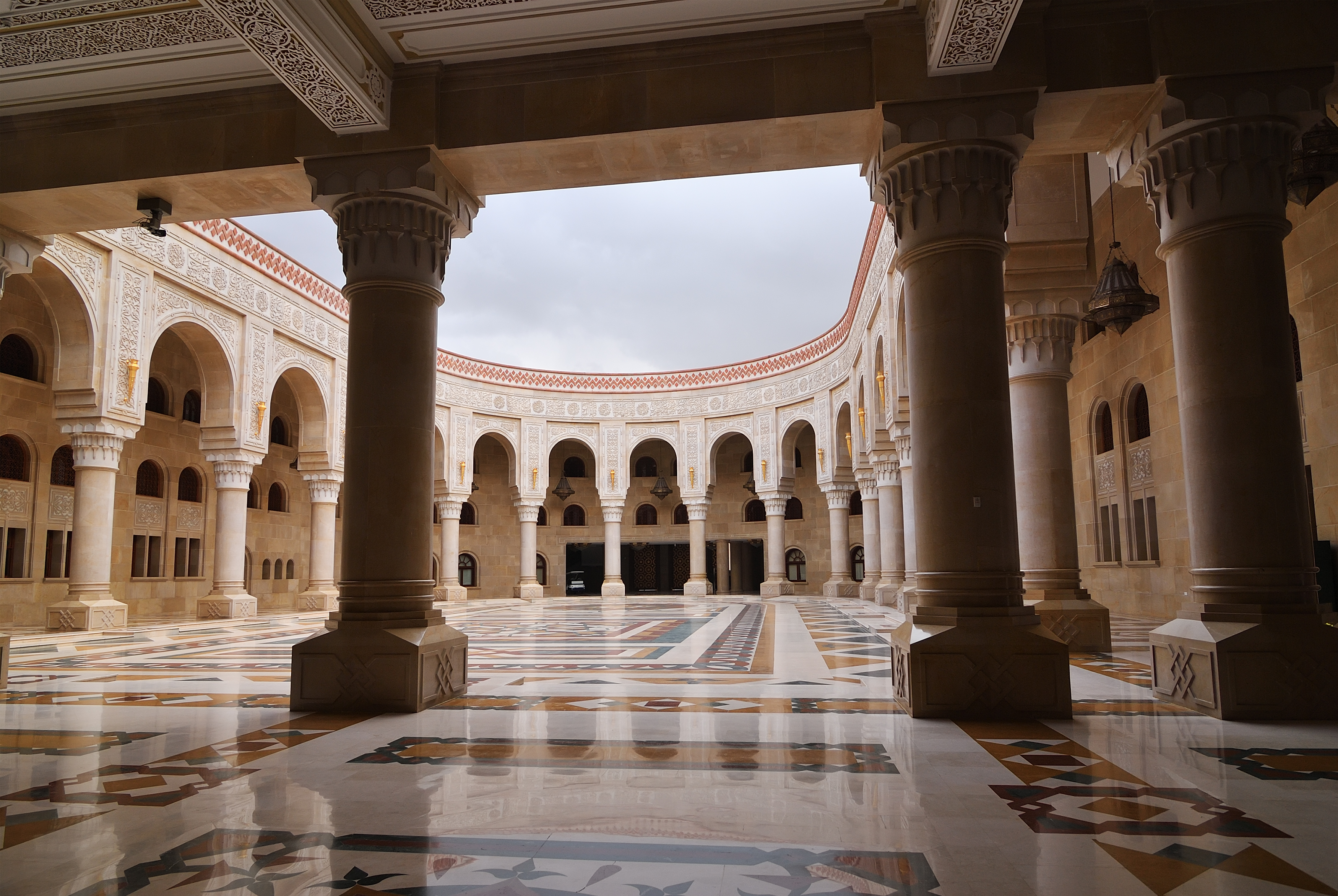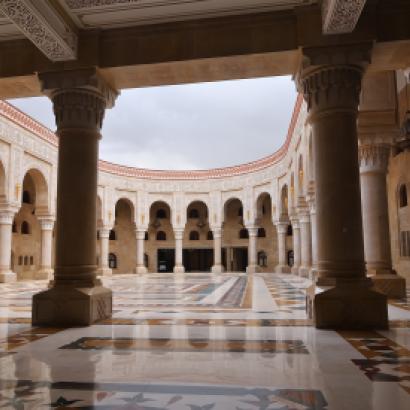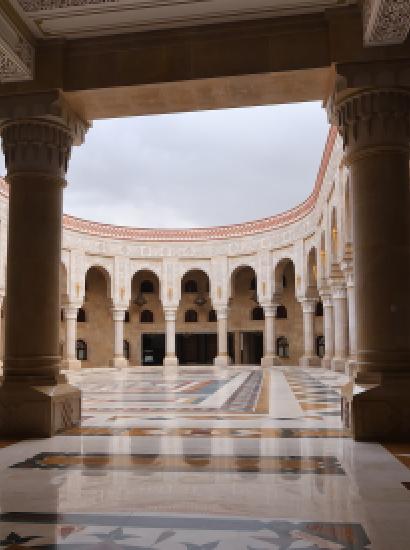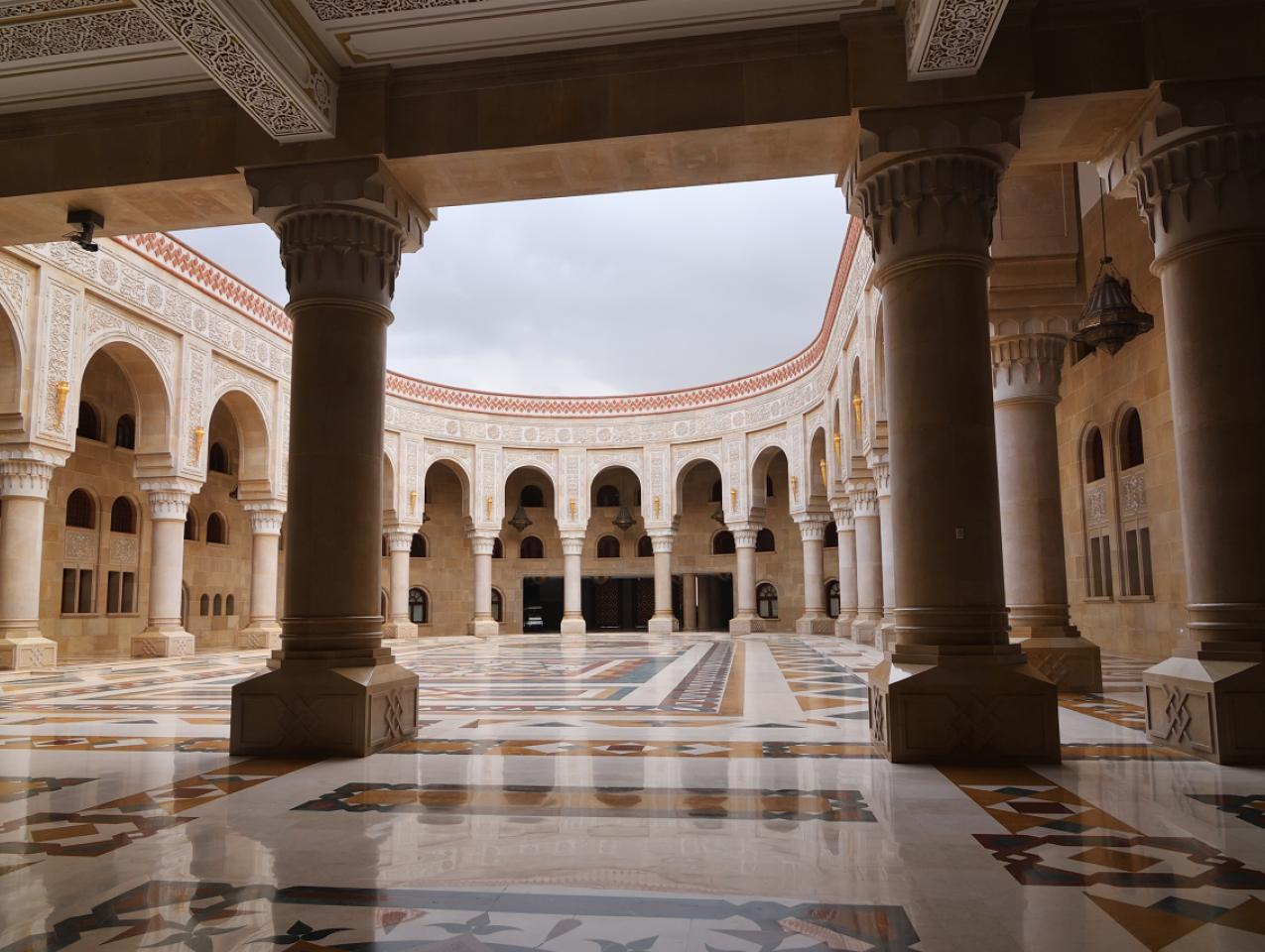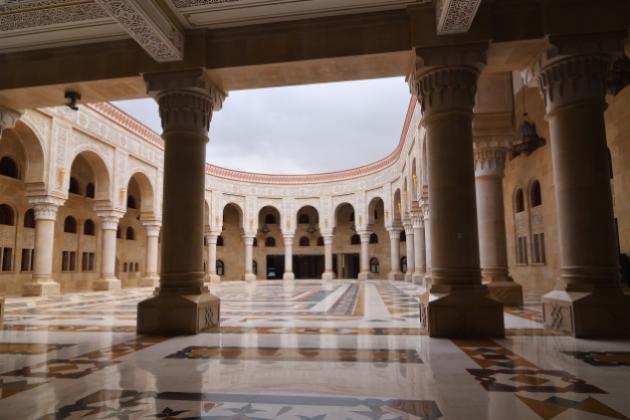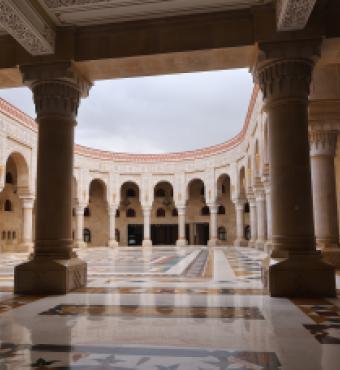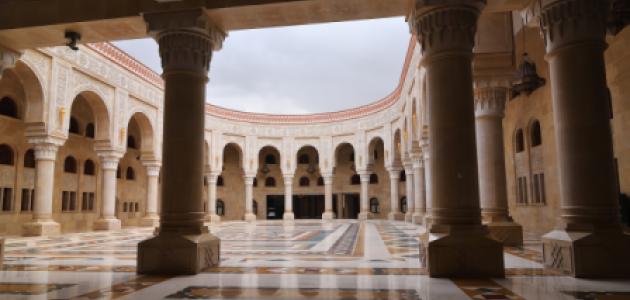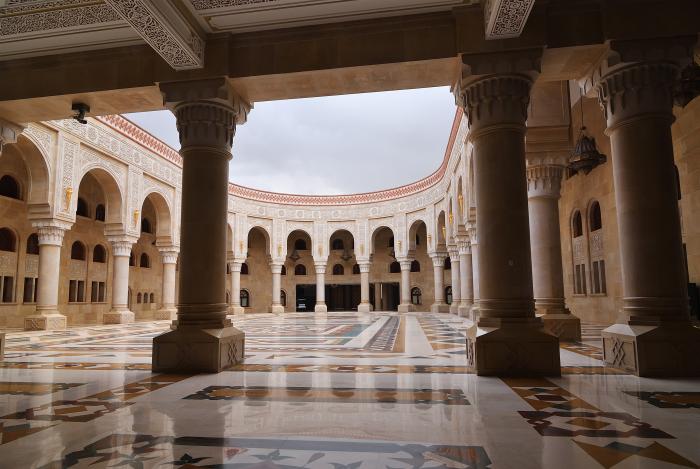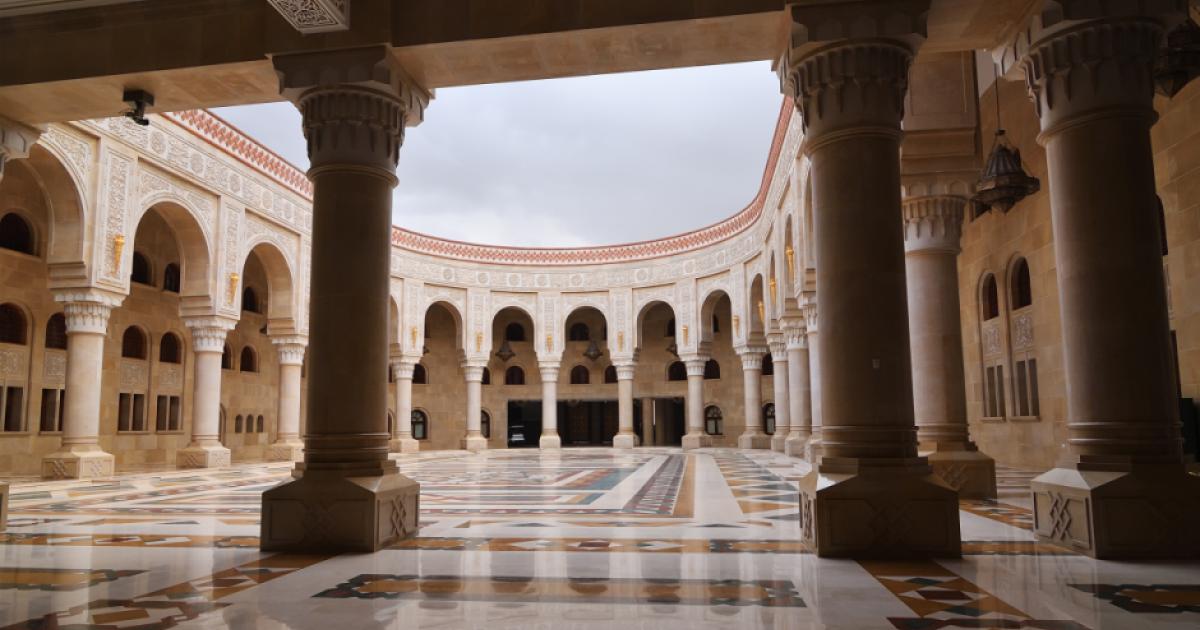It has been seventeen years since the September 11 attacks, a defining moment not only for America but for our allies as well, and the response of one of them can help understand some of the underlying cultural aspects of contemporary political debate. When the news reports spread through Paris, the initial reaction of profound shock quickly gave way to vigorous expressions of solidarity with the United States. “We are now all Americans” Le Monde declared famously. France, itself so often scarred by terrorism from the Middle East since the Algerian War, felt threatened as well, as painful national memories reemerged. The expressions of transatlantic sympathy were therefore all the more sincere and heart-felt. France stood firmly with the United States against the terrorists.
Yet within a week, a different, less admirable response emerged. As the French press published accounts of the memorial service in the National Cathedral in Washington, some commentators began to assert a moral equivalency between what they called Protestant fundamentalism in the United States and the Islamic fundamentalism of the terrorists. This description implied that the victims, in New York, Washington, and a field in Pennsylvania, were ultimately indistinguishable from their killers.
That characterization of the conflict as one between symmetrical fundamentalisms was profoundly flawed. It displayed an inability to distinguish between allies and enemies, let alone right and wrong. Even worse it amounted to a cold-blooded trivialization of the death and destruction, while the ruins of the Twin Towers were still smoking.
What motivated this transformation of the initial sentiment of French solidarity into garden-variety European anti-Americanism? One might speculate as to whether a deep historical layer was coming to the surface, an older animosity toward specifically Protestant power echoing France’s distant past as an emphatically Catholic country. Much more likely however is that this demonization of Protestantism in Washington is indicative of today’s stridently secular France that prides itself on its lay identity and that recoils at any public display of religion, and especially religion in America. Instead of a clear understanding that Islamist extremism was the enemy, this alternative account placed the blame on religion in general.
Whatever the sources of this flawed response to 9/11, a suspicion of the US began to inform the trans-Atlantic cultural conflicts that quickly erupted, shattering the moment of European solidarity and contributing to the rise of an anti-Americanism that still impinges on relations within the West. The recent war of words between Angela Merkel and Donald Trump is a reprise of the attacks on George W. Bush from the governments of then French President Jacques Chirac and German Chancellor Gerhard Schroeder.
Yet recalling this moment in 2001, the negative reaction in Paris to religion in Washington, is useful for another reason. It not only tells us something about the cultural divide between Europe and the United States. It also provides an opportunity to complicate the question of political theology as it has been explored in the contributions to this Caravan: political theology is a question for the West as much as it is for the Middle East.
It is important to avoid the liberal bias that religion is only a matter of the past, of the ignorant, or of the world outside the West. Political theologies and associations with religion also impact civic life in the West, both when it inherits values cultivated in religious traditions and when it frames its political visions in terms of religious conflict. Our modern world is not as far away from religion as advocates of secularization often claim. Political theology is not only a question of Islam; it is part of America as well, especially in terms of American responses to Islam and the Middle East.
That religion remains a factor of considerable force outside the West is self-evident. Islam in particular still plays significant if varied roles in the polities that stretch across more than half the globe, from North Africa and the Middle East through Central Asia and India and into the far stretches of maritime Southeast Asia. Yet this is not one-size-fits-all. Islam is associated with kingdoms and republics, with dictators and democrats, with terrorists and traditionalists. Islam does not lead to one exclusive form of governance. It can serve as a point of reference for states that support secular cultural sectors, but it can also function as a rallying cry for violent Islamism, the political instrumentalization of Islam for radical purposes. This Islamist radicalism exists in the two main variants of Islam, Sunni and Shia, and precisely that religious difference in the Muslim world has spilled over into politics in the US. Our debates are now embedded in the political theologies of Islam; our polarization has taken on the shape of that religious divide.
The trauma of 9/11 led to an indictment of specifically Sunni extremism. Public discussion has since then fixated on Sunni groups, such as Al Qaeda and ISIS, and rightly so, with their track record of killings and their advocacy of retrograde cultural norms. In addition, special blame has been reserved for the Wahhabi establishment in Saudi Arabia for its international promotion of extremism. One of the accomplishments of Saudi Crown Prince Mohammed bin Salman has been to take on that clerical class, and the US should back him in that effort.
Yet this anti-Sunni perspective has simultaneously deflected attention from the Shia Islamism of Iran, the sole power in the Middle East with a consistent and vicious anti-American agenda. The issue is not traditionalist Shia Islam which generally has a quietist and unpolitical character. Instead, the Shia Islamism that predominates in post-revolution Iran is driven by a millenarian theology that translates into a revisionist and violent agenda for the region.
The concern with Sunni Islamism, a legitimate consequence of 9/11 and the atrocities of ISIS, has been consistently manipulated into a biased public discourse that targets Saudi Arabia, while whitewashing the violence of Islamism emanating from Shia Iran. This explains, for example, the eagerness with which some politicians and journalists have been insisting that the US break off relations with Saudi Arabia in the wake of the murder of the journalist, Jamal Khashoggi. Instead of calling exclusively for a punishment of the perpetrators, they demand a complete rupture with the Sunni power, despite the vital importance of the long-standing relations between Washington and Riyadh. In the face of this anti-Sunni and anti-Saudi agitation, President Trump has tried to maintain those traditional US ties to Saudi Arabia, not because its authoritarian features are admirable, but because it is an important ally in a dangerous region.
The counterpart to the anti-Sunni bias is the liberal affinity for the theocracy in Iran. A concerted public relations effort has been underway to elevate the standing of the Islamic Republic and, despite its revolutionary ambitions, to accord it ever greater legitimacy: the outcome of this love affair with Tehran was the JCPOA, the “Iran Deal,” that provided strategic advantage to Iran against its neighbors, especially Saudi Arabia. At stake is not Iranian civil society which regularly engages in sometimes heroic acts of protest against the regime, but the brutal Islamist regime that has made clear its ambitions to drive the US out of the Middle East and to assert itself as the regional hegemon in the Muslim world, against Sunni and Arab leadership.
The Khashoggi murder demands justice and punishment. Yet it is profoundly hypocritical for critics of administration policy to take that act of criminal violence as grounds to jettison our ties with Saudi Arabia altogether, while the same critics harbor nostalgia for the JCPOA, despite the infinitely greater violence perpetrated by the Iranian regime—against the Iranian protesters jailed and tortured, and against the Syrian rebels fighting for their dignity against the Iran-backed dictatorship of Bashar al Assad. Liberals have been rightly calling for the rule of law and reform in Saudi Arabia, but they gladly give Tehran a pass. Similarly, they are right to call for a clarification of Khashoggi’s death; one only wishes that they had displayed similar outrage at the 2012 assassination of journalist Marie Colvin, allegedly at the hands of the Syria government, or more recently, the November 2018 killing of Syrian journalist and regime critic Raed Fares. This political distinction among murdered journalists is Orwellian: some deaths are more equal than others.
It is therefore worth asking why the tilt toward Iran in parts of the foreign policy elite that led to the Obama administration policy. What makes Iran attractive to liberals? And why the predisposition to denounce Saudi Arabia?
The answer lies in the nature of the two regimes and their political theologies: a revolutionary dictatorship in Iran pursuing regional revisionism versus a traditionalist monarchy in Saudi Arabia, now set on a domestic agenda of moderate reform. The former evidently appeals to a liberal world view, which is prepared to excuse the “excesses” of the revolution in the name of social justice. It also tries to explain away Tehran’s anti-Americanism by placing blame on previous US policies. In contrast, that same liberalism cannot countenance the relative stability of monarchies—not only in Saudi Arabia but in Jordan and Morocco as well—as inconsistent with democratic theory. There is however a deep irony in that political judgment, the preference for revolutionary dictatorship over stable monarchies, insofar as the critics of Sunni Saudis on the grounds of insufficient democracy fail to stand with the democratic opposition in Iran. The yardstick of democracy is being applied inconsistently, a cudgel to punish Riyadh while withheld from Tehran.
The regional conflict between Sunni and Shia political theologies has found a reverberation in American political debate. Support for the prominent power in the Sunni world, Saudi Arabia, has come to be associated with a conservative moderation, a gradualist effort to move Islamic legacies and practices into the modern world, coupled to a recognition of the realpolitik of American interests. This is the context in which Mohammed bin Salman has taken on the clerical establishment in Saudi Arabia as well as other reforms. It would be unfortunate if the future of this agenda were thwarted, but one can be certain that his Wahhabi opponents are no doubt delighted at the attacks he is facing from the West.
In contrast, support for Shia Islam and the Islamic Republic has become the position of choice for liberals and progressives to whom the elan of revolution—any revolution—clearly still has some appeal. They apparently missed the reports of how the leftist allies of the Islamists in 1979 soon ended up in prison. Yet this is hardly the first case in which one observes progressives willing to make excuses for dictators. In the case of Iran, a further psychology operates, a desire to proclaim an American guilt for past policies. That fixation on guilt is part of the political theology that only places blame on the West and never on revolutionary actors.
The grand conflict in the Middle East is playing out between Saudi Arabia and Iran, a Sunni and a Shia power, equipped with conflicting political theologies. However, this competition has now become embedded in the polarized politics of the United States, which has therefore also taken on its own theological dimension: a conservative moderation that integrates tradition and reform while recognizing American interests in contrast to a progressive affinity for revolution coupled to a predisposition to indict the US and the West. These are the two sides of our aisle.







